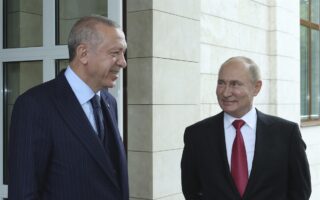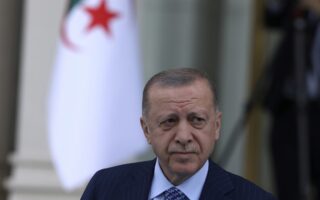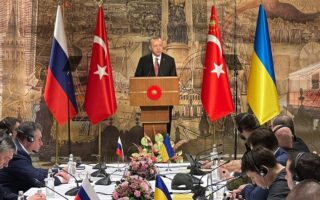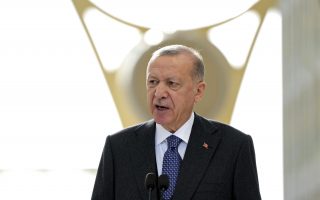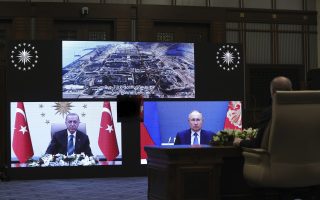Hybrid deterrence in an age of uncertainty
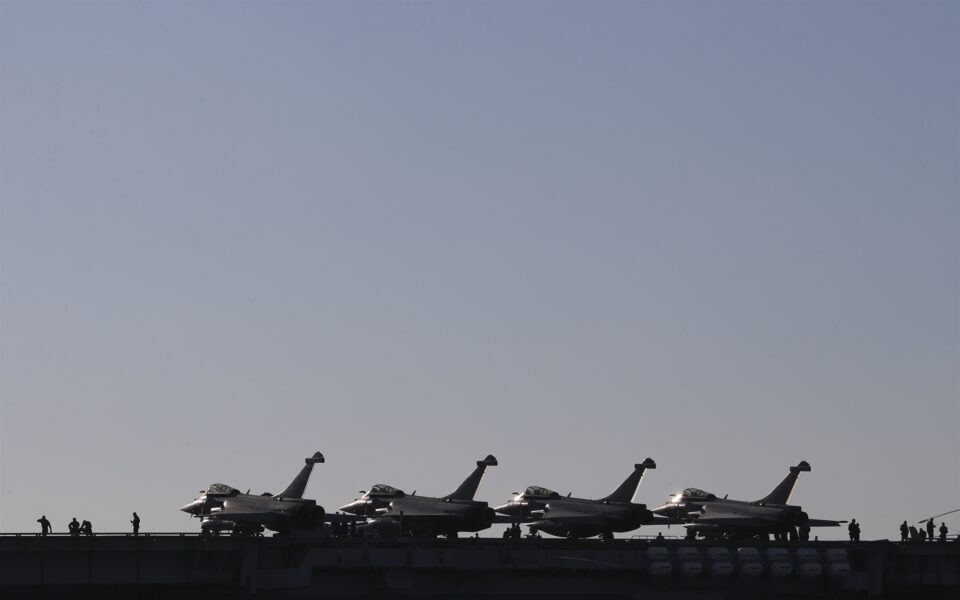
The evidence that Greek-Turkish relations have entered a new phase of hostility are unfortunately proliferating. The pressing question is whether we are heading toward a new military crisis or whether this will be a temporary deterioration of bilateral relations. To start things off, there are two important factors that are proving fertile ground for this intensification of Turkish aggression.
The first is the unofficial launch of the Turkish election period that reinforces the internalization of foreign policy. It is no coincidence that many politicians from across the spectrum of the opposition are competing to outdo each other in statements against Greece. There is a deeply rooted suspicion of Greeks in Turkish society that no opportunistic politician can ignore. Essentially this means that any offensive move, whatever form it takes, if successful will benefit Turkish President Recep Tayyip Erdogan in the runup to the election.
Secondly, the war in Ukraine has inevitably drawn the attention of the international community to the Black Sea. This acceptance, maybe, will encourage the Turkish leadership to set in place actions that will create a fait accompli in the Aegean. If one was to judge the inhibition displayed by NATO on the Turkish games over the membership applications of Finland and Sweden, Ankara may believe there is more leeway to exert greater pressure on Greece. After all, Erdogan’s Turkey has long since stopped behaving like a NATO country.
This pessimistic reading of the course of Greek-Turkish relations over the next few months is moderated by two crucial factors that were not present in the crisis of 2020. The first is the significant reinforcement of the Hellenic Air Force, with the cutting-edge Rafale fighter jets and the arrival of the first upgraded F-16 fighters. Greek air power is superior to that of Turkey’s both in the quality of materiel and of personnel, making a large-scale offensive move prohibitive.
Secondly, the signing of the Greek-French defense agreement changed the balance of power in the region. The most important military power in the EU committed itself to defend our country in the case of war, without exception. The reliability of President Emmanuel Macron must be believed based on his conduct on Greek-Turkish affairs up to now. At the same time, the presence of American forces significantly limits any potential fields of activities for the Turkish military. Considering that US-Turkish relations are at a historic low, potential military actions against Western Thrace or Crete will automatically provoke an American reaction.
Considering that US-Turkish relations are at a historic low, potential military actions against Western Thrace or Crete will automatically provoke an American reaction
However, Turkish revisionism is a multilayered and forceful challenge that cannot be confronted through the use of conventional military power alone. Ankara has gleaned several lessons from the Russian strategy toward Eastern Europe, adapting it to its own realities. The instrumentalization of migrant flows, the propagation of misinformation about our country, the attempts to manipulate Islamic minorities, and aggressive information-collecting operations, are all included in a gray zone of Turkish activities that undermine Greek sovereignty.
Our country must form a new hybrid deterrence that can differentiate the various threats posed by an opponent (whether conventional or asymmetrical) to better confront them, while providing the optimum response and countering our neighbor’s every move in the same, or at least similar, fashion. In other words, Athens must adopt a holistic approach that is not limited to the purchase of military equipment and appealing to international law. They must always find us ready to increase the cost of their choices, until they decide to change their policy.
The successful resistance of the Ukrainian people shows that military means alone are not enough to confront a major external threat. A successful war of information promotes winning narratives that mobilize society and help appeal to foreign audiences. A society characterized by a high patriotic feeling is not evidence of militarism, but a necessary requirement for survival. At the same time, Athens must begin consistent efforts to increase its influence in crucial decision-making centers. Before Ukraine, it was Cyprus that had suffered an invasion, and today it is Greece that defends democratic values in the region.
Today’s Turkey will not see reforms and it will not return to the path of democratization. The entirety of Turkey’s leadership is pursuing a normalization of relations with all its neighbors, apart from Greece and Cyprus. This is not a random development, but an expression of intent for expansionism against Hellenism. These conditions do not allow for any serious negotiation. Only a policy of strength can shield our country in the coming years. Otherwise, the strong will get whatever they can, and the weak will give up whatever they must.
Manos Karagiannis is associate professor in the Department of Defense Studies at King’s College London.
